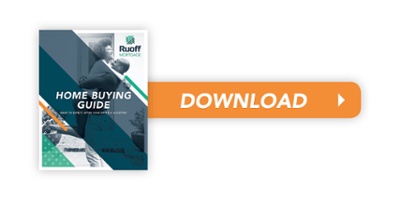
Courtney Christensen
Are you ready to buy a house? You’ve got your debt under control, your credit score is good, and you feel like it’s time to take that next big step? There’s only one last hurdle to tackle – the down payment.
Coming up with a huge chunk of change upfront can be challenging, and most of us don’t have tens of thousands of dollars in our pockets. If you’re buying your second or third home, you can often get this cash from selling your current home. But, first time buyers don’t have that luxury. So, do you really have to put down a full 20% of the home’s price in order to buy it? The answer may surprise you!
What is a Down Payment For?
Is a down payment really necessary? Not always. However, there are major benefits to having a down payment, and alternatively, some major downsides to not having one. The three biggest benefits of down payments are lower monthly payments, less interest paid overall, and instant equity. The downsides to no or a small down payment? Higher monthly bills, more interest paid in the long-run, and no equity.
When you put down a sizable amount of money on a mortgage, you are essentially paying solely on the premium of the home’s price. You don’t have to pay any interest on that money, so it not only lowers the amount you borrow from a lender (which lowers your monthly payment), but it also cuts out a lot of interest payments. Even with low interest rates, 3.5% interest over 30 years is thousands of dollars. On a $200,000 house, you will pay over $120,000 in interest over 30 years. Your new home will cost you $323,000. It adds up, so anything you can pay upfront will reduce those interest payments.
Equity, on the other hand, is a little less obvious. Equity is defined as the difference between the market value of a home and the amount of debt/mortgage balance left on the home. Equity is great for refinancing or selling your home. When refinancing, you can borrow against that equity and get a large cash payment out of your house. When you sell, that equity translates into pure profit for you.
How Much Should You Put Down?
When you begin researching about down payments, you will likely see a lot of information about industry standards. For instance, the most common down payment is 20%. This is because many mortgages come with insurance to protect the lender, and those insurance costs can be eliminated for you with a down payment of 20% or more. However, you don’t have to provide 20% - in fact, there are many, many loans available that don’t require you to.
Some of the most popular loans for first-time buyers offer mortgages with no-to-low down payments. For instance, USDA and VA loans don’t need a down payment at all. The only thing you will pay up front for these loans is closing costs. An FHA loan requires a 3.5% down payment. Even conventional loans allow for 3.5% down payments.
Additionally, many states provide Down Payment Assistance Programs that provide loans or grants for down payments. This way, you get the best of both worlds – no money up front and all the benefits of a big down payment.
How Do You Decide on a Down Payment?
Speak with your loan officer about your options, review your budgeting with a calculator, and various down payments. Get pre-approved
So, now you’ve got a choice to make. How much of a down payment should you put on your home? The best way to make this decision is by speaking with your loan officer and any other borrowers on your loan (like your spouse or a parent). Review your budget, find out how much you have available for a down payment right now. Decide whether waiting for a larger down payment or purchasing right now is better for you.
Take a look at our Mortgage Calculator to find out what your monthly payments could be based on how much you pay on a down payment. You will be shocked at just how much you can save over time! But, remember, no matter how much you can afford to pay out-of-pocket for a home, there are options available to you. Don’t let a down payment get in the way of buying your dream home!
.png?width=375&height=150&name=MicrosoftTeams-image%20(63).png)

